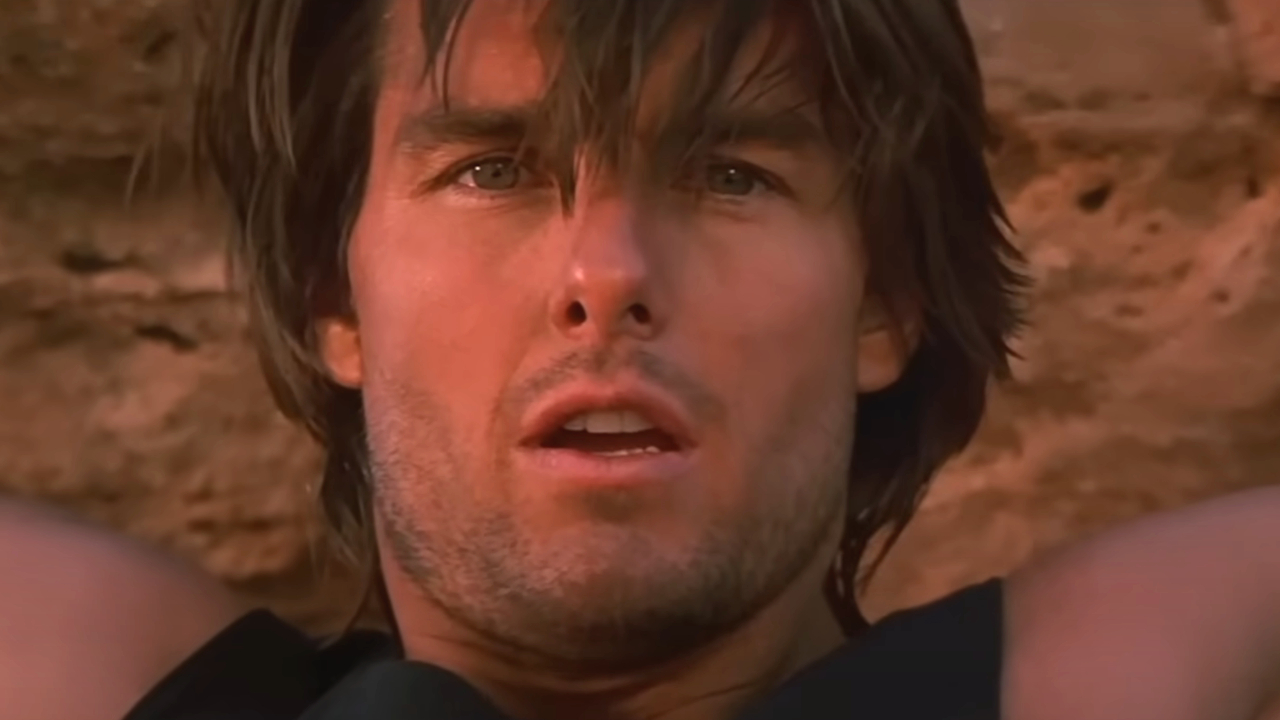Damian Chazelle’s Babylon is a hell of a lot of movie. The total runtime clocks in at over three hours, and that time is used to chronicle the lives of five protagonists across a couple dozen decades against the backdrop of the wild west of Hollywood in the first half of the 20th century. There’s violence, death, suicide, defecation, vomit, piss, profanity, sex, drugs, and underground anarchy. It ranges from outrageous to somber to awesome in its emotional evocation portraying the dreams and nightmares of stardom.
At its best, Babylon is exciting, hilarious, and a blast… but those adjectives are mostly reserved for describing approximately the first 90 minutes. The back half of the film, while it does have its highlights, demonstrates an inability for the movie to fully carry its own weight, and the multi-faceted narrative descends into tropes and some groan-worthy material before the end credits start to roll. There is a great deal of passion in the filmmaking, not to mention a verisimilitude reflective of the writer/director’s research that grounds the most fantastical elements, but it suffers from shuttering momentum toward the end that substantially spoils the greatness that it opens with.
Following an opening sequence that features a first-person perspective shot of an elephant (ahem) relieving itself on a person as its being pushed up a hill in a flatbed truck (prepping the audience for the gross-a-thon to come), Babylon begins in earnest with an elaborate mansion party being thrown in Bel Air in the year 1926. Amidst the rampant debauchery are five protagonists whose stories unfold across the next 26 years: Manny Torres (Diego Calva), an assistant who finds himself on the rise to become a producer; Nellie LaRoy (Margot Robbie), a sparkplug actress just waiting for her big break; Jack Conrad (Brad Pitt), a beloved, established big screen star; Sidney Palmer (Jovan Adepo), a gifted trumpet player; and Lady Fay Zhu (Li Jun Li), a singer and jack of all trades.
Linearly jumping through time, the movie follows the characters through the greatest heights of their individual careers as the industry evolves by leaps and bounds – from silent films to “talking pictures” and from chaos to codes, rules and standards. Of course, the party can’t last forever, and those highest highs are inevitably followed by lowest lows – most of which are of the cliché variety, the familiarity robbing them of the full weight they are meant to have.
For about half of its runtime, Babylon is one of the best movies of the year.
As you may have surmised, the early scenes in Babylon invite the audience to strap in for a wild and eye-popping journey to come, and as its first act progresses it’s blissful how it makes good on that promise. Wild as the opening sex and drugs-fueled bacchanal is, even wilder is the witnessed experience of the actors and filmmakers going to work the next day on an open set that has multiple different productions rolling simultaneously. The movie weaves together three plot threads – Nellie making her scene-stealing debut, Jack working on a hectic war movie/getting exceptionally drunk, and Manny preventing an on-set strike/hunting down a camera for rent – and the madness of it mesmerizing.
Blending reality and fiction, 1927’s The Jazz Singer ushers in a new age for Hollywood, and Damian Chazelle not only does a tremendous job illustrating the impact of the arrival of talkies, but doesn’t miss a beat keeping up Babylon’s energy even as a depicted shift occurs in movie production. Riffing on Gene Kelly and Stanley Donen's Singin' In The Rain, a sequence with Nellie shooting her first sound film is hilariously intense, with all matters of small things going wrong, and it crescendos with a punchline that is exceptionally dark, but also laugh-out-loud funny.
Those kinds of crazy swings persist throughout the film – with Nellie later finding herself fighting a rattlesnake in the desert, and Manny unintentionally trying to con a gangster (Tobey Maguire) with fake money in a nod to Paul Thomas Anderson’s Boogie Nights – but the enterprise exhausts itself. The individual characters are dynamic, but their stories end up being typical tabloid material, and as originality slips, so does one’s engagement.
Your Daily Blend of Entertainment News
Babylon gets uneven in its character focus and weighed down by tropes.
It should also be noted that it is a tad disingenuous to say that Babylon has five protagonists, as while all of the characters highlighted earlier have their own narratives to play out from the opening party to the film’s end and reflect a standout aspect of the industry, Sidney Palmer and Lady Fay Zhu get far less time in the spotlight than the other three. They have their place in the story that Damian Chazelle is trying to tell – particularly showcasing Hollywood’s immortal obsession with image – but they end up getting shortchanged as Nellie, Manny, and Jack’s stories are given far greater emphasis. Their arcs are complete, but not wholly fulfilling, and it feels like a missed opportunity.
In its portrayal of Hollywood excess, Babylon is both a brilliant and grotesque feast for the eyes.
“Audacious” is a word that ultimately fits both the content and the style of the film, as the collaboration between Chazelle and cinematographer Linus Sandgren yields dazzling and stomach-wrenching results. Between Jeff Tremaine’s Jackass Forever, Damien Leone’s Terrifier 2 and Ruben Östlund's Triangle Of Sadness, grossness on the big screen is a recurring presence in 2022, and Babylon is a significant part of that trend as well – with the aforementioned elephant business just being an appetizer. It’s an unflinching work, and all the better for it.
Of course, it’s not just about the bodily fluids. From spectacular, long oners that boggle the mind, to sharp and emotional montages, Damian Chazelle continues to prove himself an impressive filmmaker who surrounds himself with real talent.
The ambition in Babylon alone is worth applauding, as it’s an epic tribute to a medium we all love that simultaneously points to a problematic history. But it’s also a film that is built on architypes, and that has its consequences as moves through its third act. It’s destined to be divisive, and worth watching to find out how you feel about it yourself.

Eric Eisenberg is the Assistant Managing Editor at CinemaBlend. After graduating Boston University and earning a bachelor’s degree in journalism, he took a part-time job as a staff writer for CinemaBlend, and after six months was offered the opportunity to move to Los Angeles and take on a newly created West Coast Editor position. Over a decade later, he's continuing to advance his interests and expertise. In addition to conducting filmmaker interviews and contributing to the news and feature content of the site, Eric also oversees the Movie Reviews section, writes the the weekend box office report (published Sundays), and is the site's resident Stephen King expert. He has two King-related columns.

